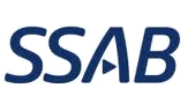Market Segment

July 22, 2022
SSAB Reports Stable US Plate Demand Despite Rising Uncertainty
Written by Laura Miller
Swedish steelmaker SSAB expects the heavy plate market in North America to remain relatively stable, reporting solid demand across most of its customer segments.
SSAB Americas, which is made up of steel and plate production at its 1.25-million-tons-per-year mill in Montpelier, Iowa, reported increased operating profits in the second quarter despite lower year-on-year shipments. This was primarily because of higher prices, the company said in its Q2 2022 earnings report.
![]()
As of Q3 2021, the results of SSAB’s mill in Mobile, Ala., are no longer included in SSAB Americas. They are considered part of SSAB Special Steels, which also includes mills in Sweden and Finland. The Special Steels mills produce quenched-and-tempered steels and hot-rolled, advanced high-strength steels.
SSAB is bringing forward the annual planned maintenance at the Iowa mill from October to September. Costs are anticipated to be Swedish krona (SEK) 370 million (US$36.35 million).
For the third quarter, SSAB said: “The market outlook is uncertain against a background of rising inflation, a shortage of components and the risks of continued fallout from the war in Ukraine. The market in Europe is expected to be characterized by a seasonal slowdown, whereas the heavy plate market in North America is assessed to be relatively stable.”
SSAB Americas’ Q2 operating profit reached SEK 6.5 billion (US$636 million) on revenues of SEK 16.3 billion ($1.59 billion). This compares to Q2 2021 operating profit of SEK 1.08 billion ($105.6 million) with revenues of SEK 4.8 billion ($ 469.5 million). “The upturn [in operating profit] was primarily explained by higher prices, which were to some extent counteracted by higher scrap and alloy prices,” SSAB stated.
The segment’s shipments reached 476,000 metric tons in Q2—an 8.7% increase from the prior quarter but a 3.6% decline from the same quarter of 2021. Shipments were higher sequentially on strong sales to the bridge construction, energy, and construction machinery markets. Demand remained good in most customer segments within North America, while inventories at distributors were still low. “A certain uncertainty was seen in the market because of rising inflation and continued issues with component supplies,” the company noted.
Crude steel production of 303,000 metric tons at the Iowa mill was 31% higher quarter-on-quarter but 3.8% lower year-on-year.
SSAB said the price of heavy plate in North America decreased somewhat but continued to be at a high level during the second quarter.
SMU’s interactive pricing tool shows plate prices peaking at $1,960 per ton ($98 per cwt) in May and falling to around $1,800 per ton by the end of June, which is where prices still stand today.
By Laura Miller, Laura@SteelMarketUpdate.com
Editor’s note: This story was originally published incorrectly stating that planned maintenance at the Iowa mill would cost $370 million. The article has been updated to correctly state that the cost will be SEK 370 million (US$36.35 million).







